#ruby reviews
Explore tagged Tumblr posts
Text
Love it when the kinda half-formed observations you make about an episode finally come to the forefront.
Watching the start of "Dot and Bubble": Hmm, everyone in this episode is very... white.
Halfway through: The Doctor certainly continues to stand out, especially in that bright red sweater amongst all the pastels
Lindy freaking out about the Doctor and Ruby being in the same room together: I suppose that could be due to some cultural taboo about interacting in-person when everyone is supposed to communicate via bubble, but that doesn't track with what we've seen of her work day...
The "twist" that the chronically online, all white, super rich, entitled to the point of satire, willing to sacrifice others without hesitation, oh so eager to colonize people living in a literal bubble (TWO bubbles) are *gasp!* actually, devastatingly racist...
Yeah, that's not a twist. That's all deliberately interconnected. The episode didn't suddenly move from an argument about social media use to an argument about racism; the two historically go hand-in-hand.
#DW#Doctor Who#DW spoilers#Doctor Who spoilers#Dot and Bubble#Dot and Bubble spoilers#me looking at reviews for how “heavy-handed” the messages are and how “fake” the monsters look:#“You fools that's the soul of DW!”#anyway I'm loving this season#can't wait for next Friday#Edit: me realizing I wrote “Rose” instead of “Ruby”#RTD's return making me think it's 2005 again lol
6K notes
·
View notes
Text
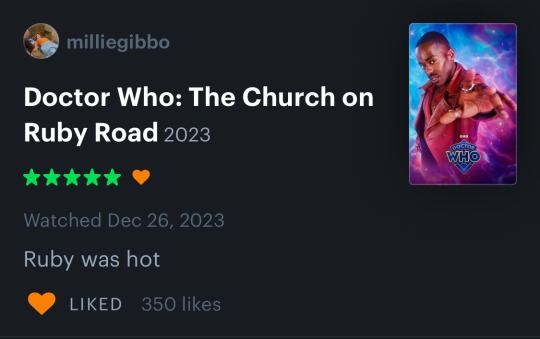
MILLIE ?!
#ruby sunday#millie gibson#doctor who#dr who#AHSJFJWHWJFJSHW#i am 85% sure this is her which makes her review of barbie saying how much she loved ncuti on screen rly sweet#15 era
407 notes
·
View notes
Text










youtube
#music video#manga review#weekly young jump#summary of the entire manga#oshi no ko#oshinoko#onk manga#onk#oshi no ko manga#my idols#my idol#my star#favorite girl#my idols children#推しの子#ai hoshino#sarina tendouji#ruby hoshino#aquamarine hoshino#aqua hoshino#gorou amamiya#akane kurokawa#kana arima#melt narushima#taiki himekawa#mem cho#miyako saitou#ichigo saitou#kamiki hikaru#taishi gotanda
54 notes
·
View notes
Text
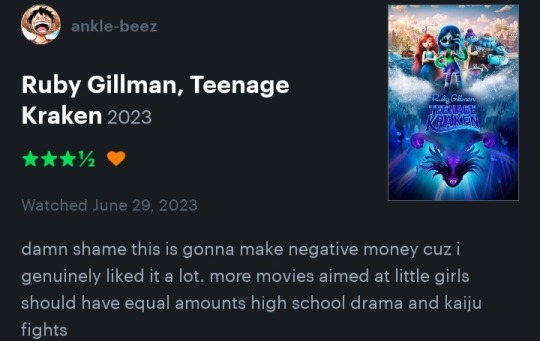
651 notes
·
View notes
Text
My August Reads Ranked

1. One Dark Window by Rachel Gillig: This was by far my favorite read this month. I love this book. I love it more than I love The Folk of the Air. More than the Dark Rise series. More than Captive Prince. Because it has EVERYTHING. The plot, the magic system, the characters, the writing, all of it is as equally good as the rest. Even though at the ending there’s a twist that’s sad, I was still EXCITED to see what happens next (more hype than sad). I root for the Nightmare too. “Long live the King.” The writing is show don’t tell and I fucking LOVE IT. I FUCKING LOVE IT. I am so tired of seeing a lot of telling in story books, and all my favs serve show.
2. Bunny by Mona Awad: This wasn’t as dark as I thought it was going to be, but it won me over with the writing. It’s clever, dark and hilarious. Samantha’s dilemma with the bunnies was relatable for me, especially the first smut salon she attends. It was a fun ride, and I enjoyed this book for reasons I wasn’t expecting to. The way Awad describes feelings is spectacular.
3. The Prisoner’s Throne by Holly Black: It was good to be back in Elfhame. I liked Prisoner’s Throne more than Stolen Heir because, of course, Jude and Cardan. I thought Wren and Oak’s story was cute and I had a fun time reading it, but I’m not over Jude and Cardan yet and that’s all I want.
4. The Stolen Heir by Holly Black: At first, I was a bit put off by how Jude-like Wren was, and how Cardan-like Oak was, but I had a good time. If Black wants to go back and write scenes showcasing Jude and Cardan falling in love, I’m all for that. Would love to see the two of them snuggling by a fire.
5. On Writing: A Memoir of the Craft by Stephen King: I knew I’d like this because every time I watch King speak, he’s fun. He’s fun to listen to, he’s fun to read. He’s at his best when he’s shooting the shit. This was a good time.
6. The Picture of Dorian Gray by Oscar Wilde: I love the dialogue in this, it can be interpreted in different ways and it’s exciting to think about. I’ve never read anything as quotable as this book. I lived for every time Dorian threw himself on a couch in a fit of angst.
7. The Corsair’s Captive by Ruby Dixon: Dixon never lets me down. It’s another cozy, fun sci-fi romance with the big blue dudes. I have to read her shifter smut; it’s going to be everything.
8. The Science of Storytelling by Will Storr: I appreciated how blunt this book was, and the information provided was interesting. If you’re looking for a book about why humans tell stories as well as scientific reasons why you should have an existential crisis. This is the one.
9. Victor by Brianna West: The most egregious offense to me was the smut. Because. How are you screwing an Angel, and it’s vanilla? No mention of where his wings are? Nothing special about his equipment? Only fucks in missionary? They could fuck in the air, but we’re going to sidestep that? Other than that the world-building wasn’t there for me, and the writing was a whole lot of telling. The adverb intense descriptions didn’t land for me, and I didn’t care about any of the characters. The fmc was annoying.
10. Haunting Adeline by H.D. Carlton: Zade is so Neil Breen coded. Like, if I found out Breen wrote this character for Carlton, it would make a lot of sense. I hate this book. I don’t know why I do this to myself.
The books I'm most stoked to read in September are: Monstrilio by Gerardo Samano Cordova, Emily Wilde's Encyclopaedia of Faeries by Heather Fawcett and Two Twisted Crowns by Rachel Gillig.

#bookblr#bookish#books and reading#book review#monthly wrap up#book reccommendations#book reccs#paranormal romance#monthly ranking#one dark window#bunny by mona awad#the stolen heir duology#the prisoner's throne#tfota#holly black#stephen king#the picture of dorian gray#ruby dixon#haunting adeline#booktok#bookstagram#romance books
56 notes
·
View notes
Text
Monty Python Fan watches Red Dwarf for the first time
(or, a Monty Python fan watches the Red Dwarf episode “Timeslides” for the first time)
Recently watched the Red Dwarf S3 Ep5 episode “Timeslides” for the first time, and I really liked and enjoyed it fr! It was very funny tbh, and ngl I fr relate with Lister’s existential dread with lounging about with nothing to do and wishing things went differently. I would absolutely love a Tension Sheet fr, I think it’d help me with my anxiety tbh
Kryten & Cat are so cool I absolutely love them both <33
Holly is a Sarcastic Queen fr 💅👑✨
Ruby Wax as Blaise (/Blaize) Falconburger was also pretty funny too, I really enjoyed her performance in the episode!
Ok the reason I did watch this episode was partly (actually no, not “partly”, it’s was “entirely” really lol) because of the fact that Monty Python member Graham Chapman was originally gonna play the role of Blaise(/Blaize) Falconburger, but he unfortunately passed away before rehearsals and filming began, and so the role was given to Ruby Wax at the last minute.
Idk why, but if in some AU where Graham never had cancer (or, at the very least in an AU where Graham’s cancer wasn’t as rapid and he was still well enough to at least appear in cameos or smth idk), this scene truly would’ve hit different at the time as it probably would’ve been, like, his final final acting role or smth, ya’know what I mean?
Like the episode is about people entering into photographs, like MOVING photographs, and so if Graham appeared in this episode as was originally planned, his performance really would’ve really given the episode a whole new meaning to it. Like the episode is about people going into the past via photographs from the past, and trying to change the timeline so they could have a different future compared to the one they currently have, so they could have a better AU life than the one they currently have, an AU life where they are happy and content compared to the mundane monotony and lack of excitement in their original life. Graham’s would-be performance had he not died would’ve (imo) represented this heightened sense of longing to be in a AU where everything is alright and good and happy and the world was ok for once (like for example, Graham Chapman not having cancer and is still alive and well and happy), as well as being really emotional too 🥺🥺😭😭❤️❤️.
Anyway, those are my thoughts and I apologise for making everyone sad now.
To cheer myself and y’all, the Red Dwarf theme song absolutely slaps fr 💯💯💯
youtube
@gcballet @iiep-wop
#graham chapman#monty python#red dwarf#scattered thoughts review#ruby wax#blaise falconburger#blaize falconburger#Youtube
36 notes
·
View notes
Text
sutekh was a fantastic villain in 1975. sutekh was a compelling and frightening antagonist for one serial. it’s okay that his motivation was just “destroy everything, i hate all living things”because he was only around for one serial before tom baker sealed him in a temporal sarcophagus forever. and it should have stayed that way, with the exception of, maybe, a few big finish excursions, since they love to reanimate the corpses of dead characters.
sutekh is NOT a compelling enough villain to be refitted as the big bad of a nuwho series. “kill everyone now” is the most generic motivation a bad guy can have. “i bring death” ok what else do you bring? do you represent anything? do you have any subtextual value, do you have symbolic meaning beyond “lol, die everyone because i said so, i’m an evil egyptian god”. there’s no substance to him, nothing deeper. a character like the master is practically made of substance, his history and the doctor’s are entwined from the start and that’s what makes him so fascinating as a threat, but even lesser iconic villains — daleks, cybermen, weeping angels, ood, the silence, the great intelligence, the fucking fisher king from before the flood — all have complex and intriguing motives and philosophies of their own. okay, maybe not the angels, but they represent something. they stand in for a concept (in the case of angels, for example, the very meta concept of being glued to your screen, physically unable to look away).
what does sutekh stand in for? he’s just death. he wants all life gone. that’s not interesting, that’s not exciting beyond the scope of one serial or one episode. he’s not nuwho material, he’s definitely not nuwho finale material. you may as well just plop the grim reaper there, scythe and all, go full torchwood (derogatory), instead of embracing the dated, orientalist egyptian imagery russell has insisted on doubling down on. i’m feeling pessimistic. i’d really been hoping for the “stuck-in-a-tv-show” theory to be proven right. how naïve of me.
#dw negativity#doctor who negativity#doctor who#doctor who meta#doctor who analysis#the pyramids of mars#dw#doctor who series 14#doctor who critical#rtd critical#fifteenth doctor#sutekh#tom baker#fourth doctor#kitty.txt#russell t davies#the legend of ruby sunday#ncuti gatwa#millie gibson#doctor who review#ruby sunday
74 notes
·
View notes
Text
Perhaps you were right after all—
We broke nearly every promise,
But not all, my love,
For I never stopped loving you,
And I never will.
That, my dear, will be the only promise kept despite all the pain that is coming with that.
SB♡
#love#writing#quotes#lovers#poetry#my writing#love quotes#healing#i love you#poem#zayn malik#queer#books and reading#news#my thoughts#longing#mental health#fandom#self love#delulu#wicked movie#emotions#ruby rose#movie review#writers on tumblr#youtube#this is what makes us girls#let me live in my delusions#poem of the day#pretty
23 notes
·
View notes
Text




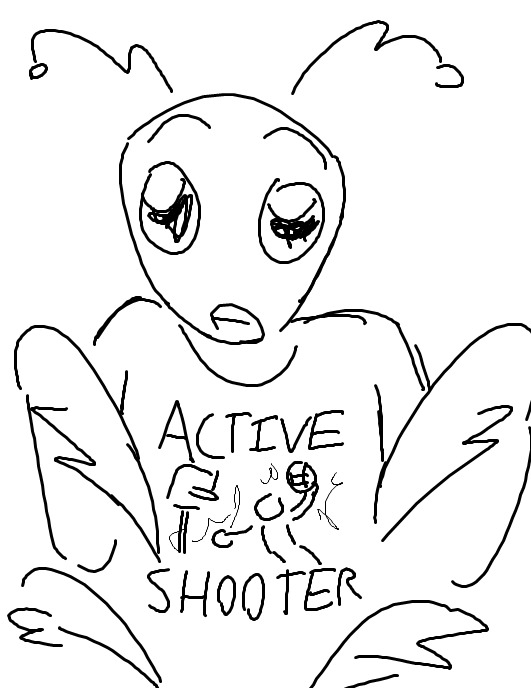

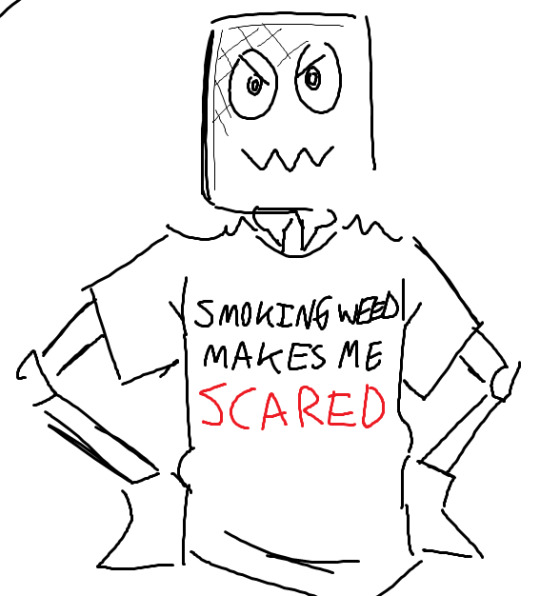
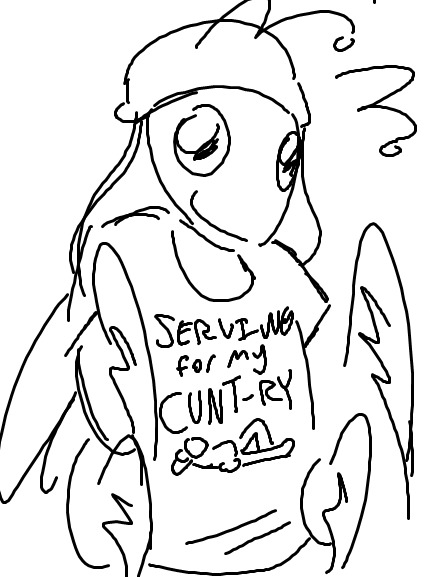
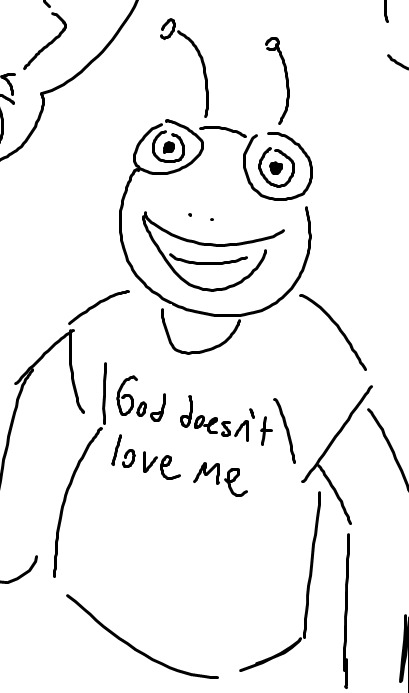
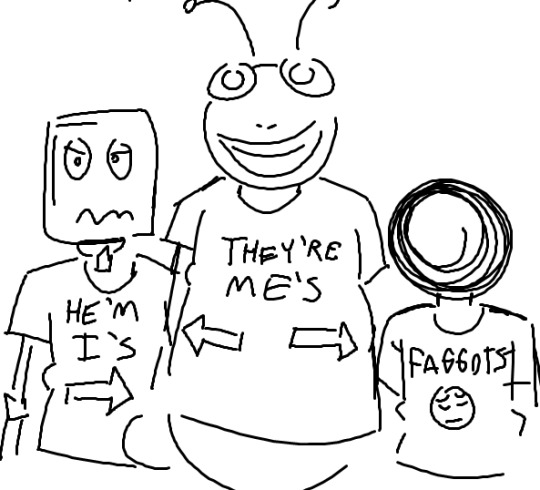
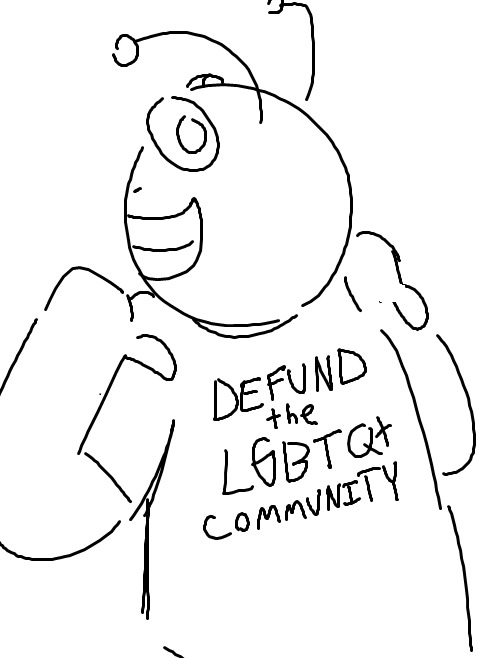

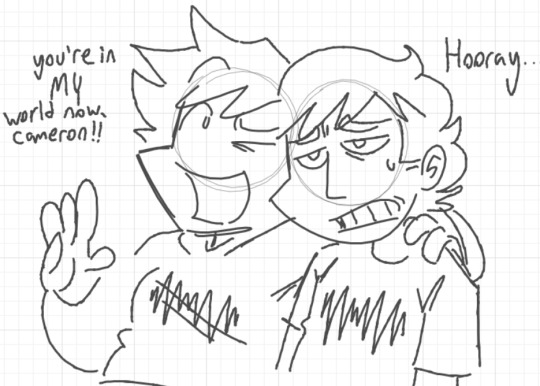




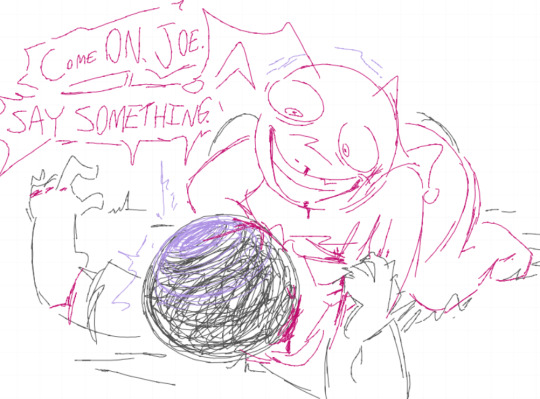
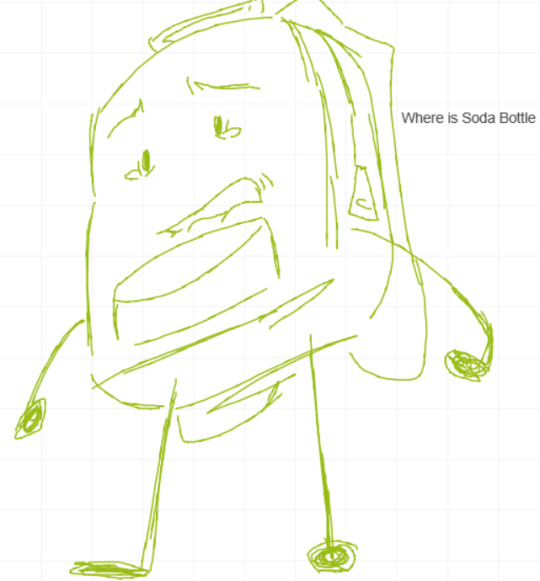
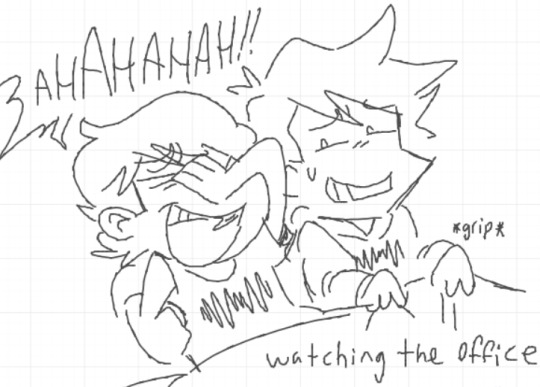


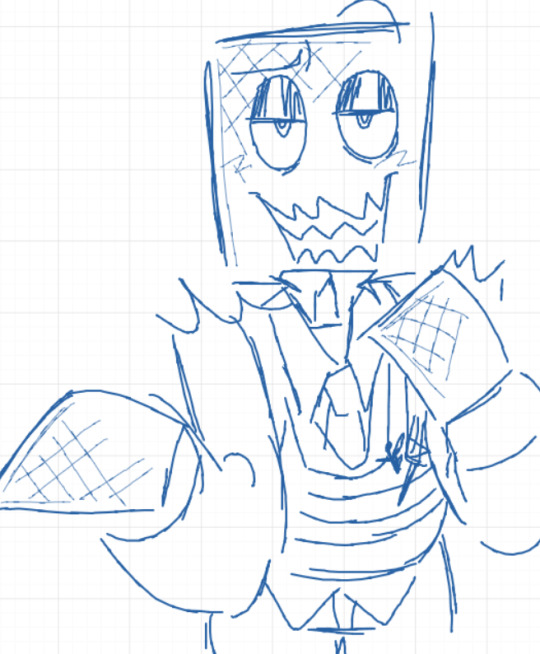

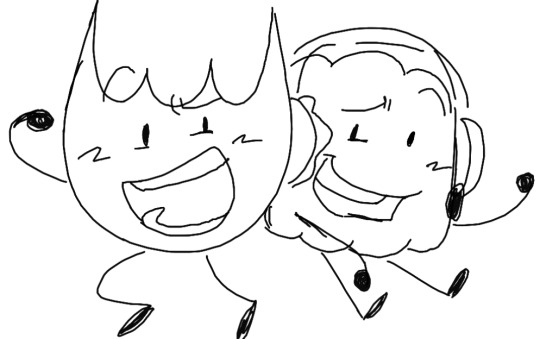
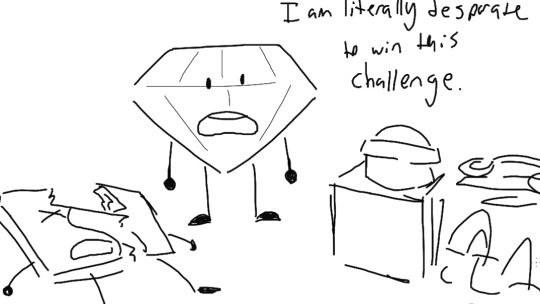


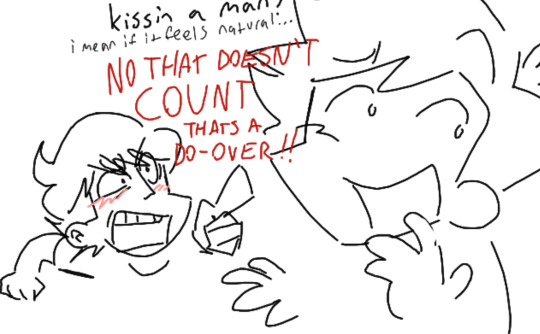
I LOVE DRAWING!
I LOVE DRAWING! I LOVE DRAWING!
#cringer reviews#cameron cringer#YES its a selfship.. shhhhh.. I am not cringe i am normal...#bfdi#bfdia#bfb#ruby bfdi#gelatin bfdi#firey bfdi#golf ball bfdi#tennis ball bfdi#hfjone#liam plecak#bugbo#bugbo gerbo#gerbo#bugbo hoppo#hoppo#bugbo thomas flyswatter#thomas flyswatter#bugbo gradient joe#gradient joe#bugbo murderstuck#bugbo murderstuck au#wowozella's ART!#bfdia spoilers#GIGGLEESS!!#KICKS MY LEGS#I LOVE EVERYTHING!!!!!!!!!!!!
331 notes
·
View notes
Text
Oshi No Ko Episode 22 Review - Blatant Loophole
You can’t fool my eyes and ears. The man with the sunglasses is obviously Aqua and Ruby’s biological father and he’s voiced by Mamoru Miyano! The man’s back to voice another potential psycho but this time, a psycho daddy. It’s obvious the mystery isn’t resolved as the true culprit is out and about.

While the Aqua and Kana sort-of date is a nice respite for both of them, it does show that Aqua potentially does have feelings for her as he’s treating her to nice things like paying for the coffee, holding her bag and even taking her back home via taxi. However, Aqua does feel like the type who is nice to girls, but doesn’t really know how to fall in love. Given his past life as Goro and how he grew up as Aqua, he never really had someone he genuinely loved. Sure, he had a crush on Ai, but a celebrity crush is a different kind of love from genuine, romantic love. He idolized the power Ai had as an idol and that love was transferred to Aqua who developed some kind of complicated feelings towards Ai. I won’t deny there was huge attachment to her.



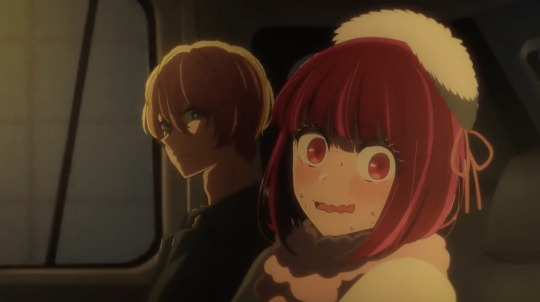

I think his feelings of attachment lingers in Akane who is essentially mimicking Ai. However, remember that she’s not Ai. Akane doesn’t even know if she has romantic feelings for Aqua herself as she’s also clueless about love. I think that the affections Kana and Akane bring to Aqua are different. Kana brings the type of feelings he’s never felt for someone else before because she’s so different while Akane gives him affection but like in the way that makes him attached because he gets reminded of Ai emotionally.

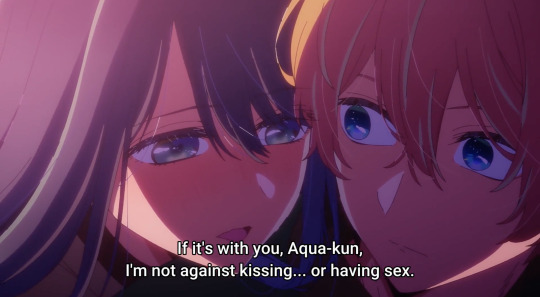

To be honest, I dislike waifu wars because I find them asinine. I honestly don’t flipping care who Aqua ends up with because at the end of the day, people will always have something to complain about when it comes to the character they love or hate. Both Kana and Akane are good choices but I honestly don’t care who is end game. If I had to choose, I'd just go the BL route and have Aqua be with Melt.

Though, I won’t deny that Akane is essentially the smartest character in the show. Even she’s sharp enough to sense the obvious loophole concluding the case. If you’re curious about what that loophole is, it’s the fact that Himekawa’s mother could’ve had an affair with Aqua’s father, which could’ve been why they’re related, and the affair could’ve been the reason for the murder-suicide. Aqua’s been too obsessed with finding his father that he’s denying the possibility that he’s still alive and is just haphazardly concluding everything on him being related to Uehara. Akane is definitely in a dilemma because Aqua is finally at peace, but she also knows that he’s covering his eyes from the real truth because he just wants everything to end. I really like Akane’s intelligence because she does have a way with keeping the mystery going.
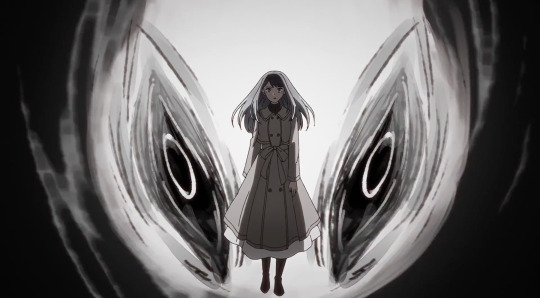


First off, I’m surprised that Ruby’s not questioning why a man dressed in sunglasses and a hat is at a cemetery. Second, I’m both surprised and not surprised that the baby daddy is voiced by Mamoru Miyano because Miyano’s essentially the psycho type-cast. Why is it that whenever there’s Koki Uchiyama in the cast, a wild Mamoru Miyano will pop up somewhere? I feel like that’s happened a lot in some animes I’ve watched and reviewed like The Marginal Service and Demon Slayer to name a few. I guess it’s the Himawari Theatre Group prestige or something… I know that while it’s cliche to have Mamoru voice yet another psycho, it’s been a while since I last heard his softer tone which definitely fits the eerie music box background music that played when he walked past Ruby. I won’t deny that Mamoru Miyano will give it his all because he always kills it. Also, is this the first time he’s voicing a dad? I feel like it is…

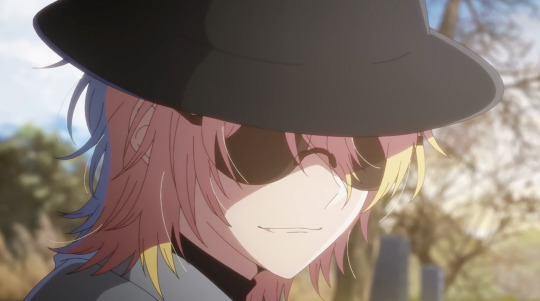
How many episodes are there left? Two more? Three more? If you know, please let me know. I know that since baby daddy is in the picture now, a season 3 is definitely going to be announced. I wonder what will happen in the last remaining episodes? What will transpire in Miyazaki? What are your thoughts on this episode?

#oshi no ko#aquamarine hoshino#kana arima#Akane kurokawa#ruby hoshino#Hikaru kamiki#review#anime#anime review#ecargmura#arum journal
31 notes
·
View notes
Text
Sex Education Season 4 Review
Unfortunately it wasn’t as good as the others. It’s less that it was bad or that I didn’t enjoy it, and more that it sort of failed in its duties as a finale. I really liked the finale, it wasn’t until I finished it that I was left like… that’s it?
Starting with the Pros: I’m glad they had the sense to end it here. This season has gotten hated on pretty hard so far, which makes sense, but isn’t quite deserved. Even though it wasn’t as good as it COULD’VE been, it was still good! In particular, Aimee, Eric, and Adam had wonderful and satisfying arcs which I found quite compelling and felt like a lovely send off to each of their characters. Maeve’s ending, despite being a point of controversy, was fitting. She had a difficult but moving season, and her destiny was always to be a writer. As disappointing as it is that she doesn’t end up with Otis, I thought the writers justified it quite well. It would’ve simply felt wrong for her to stay back in Moordale just for Otis. She was always going to get out.
This brings me to the Cons. I have to say, my biggest disappointment with this season has to be Otis himself. Being the lead character, I really wish they would’ve chosen a more personal storyline with more depth to it to send off his character. Instead, they had him acting like a child the whole season. He’s the primary character and yet he has the least interesting, least sympathetic, least moving storyline. It was all about his relationships with Maeve, Ruby, and Eric, and his competition with O. Nothing really about him. They didn’t give enough closure as to how his future looks- he’s no longer the school sex therapist, which is disappointing. He agreed to think about working with O, but that’s all, and that isn’t the most satisfying conclusion. They left him in a very nondescript place. Additionally, many former cast members weren’t in this season. As a result, I felt that there were a number of missed opportunities. My other big complaint is, predictably, the change in setting and new cast of characters. I really didn’t love the new school. I don’t think I need to elaborate on that too much, it was just kind of over the top in a way that felt misplaced and unrealistic. As for the new characters, most of them weren’t bad, they were just unnecessary. The one character I did have an issue with was O, who was a rather grating presence. Which I don’t think was something all that good for a finale. I didn’t find her character at all interesting or sympathetic. She was really annoying, and didn’t grow on me at all over the course of the season.
To sum things up, I wish the writers had just focused on the characters they had already. The new characters weren’t as interesting (naturally), and I thought the season could’ve benefitted from more of a personal journey for the characters we already know and love- such as Otis, Jackson, Ruby, or Viv. When a show ends, I always really like to have some closure on where each of the characters are headed in the future, such as new passions, future relationships, careers, etc. While again, they did a lovely job with this with a few characters, there were a lot of characters who just left me unsatisfied (namely the aforementioned 4). I enjoyed the ending, but it left me feeling like a lot of precious time was wasted with new characters and misplaced storylines. It didn’t feel as though the writers quite understood how important this season was, and failed to treat certain characters with the care they deserved.
#sex education netflix#sex education s4#sex education season 4#otis milburn#maeve wiley#aimee gibbs#jackson marchetti#ruby matthews#vivian odusanya#eric effiong#adam groff#emma mackey#asa butterfield#ncuti gatwa#tv review#sex education show
207 notes
·
View notes
Text
youtube
Hello again!
Sorry it took me so long to cover these but they are here now, my reviews and analysis for RWBY Beyond!
#RWBY#Video#RWBY: Beyond#Analysis#Review#My work#& Enigma's editing#Somewhat (RWBY)#Vacuo#Give that girl a cult#Junior Detectives#Boba sisters#best sisters#Ruby Rose#Yang Xiao Long#Oscar Pine#Jaune Arc#Youtube
50 notes
·
View notes
Text

#academia aesthetic#book blog#book life#book review#books & libraries#books and reading#chaotic academia#chaotic academic aesthetic#classic academia#dark acadamia aesthetic#dark acamedia#light academia#dark academism#dark academic aesthetic#romantic academia#aesthetic#old aesthetic#ruby bell#lit#moodboard#literature#bookstagram#poems and poetry#sad notes#studyblr#booklover#depressing life#sad poetry#poetry#dark academia
39 notes
·
View notes
Text
Your Evil is My Good - Pyramids of Mars, 1975

There are some things, though not many, that the Doctor Who fandom seems to universally agree on. Everybody seems to agree that the Weeping Angels are a great, iconic monster. Everybody seems onboard with the notion that The Caves of Androzani is one of the best stories of all time. Everybody seems to agree that the Hinchcliffe era is one of the most consistently good runs in the whole show. You can probably see where I am going with this. Pyramids of Mars has been forever lauded as one of the all-time great Doctor Who stories, a shining example of a show that appealed to all ages at the peak of its powers.
Like all consensus opinions, there is obviously a clear logic to this. Pyramids of Mars is incredibly memorable and influential. It was, after all, the third serial to be released on the VHS line and it topped the DWM poll for most anticipated DVD release in 2003. Even if it were not so formative and prominent in fan's minds (the amount of times it has been selected for re-release and repeat is remarkable) it would still be one of the most influential and groundbreaking stories of its time. It is hard to challenge the claim that Pyramids of Mars is the single most important story of the Hinchcliffe era. Not the best (there are at least four prior to this that could more readily stake that claim) but, in an aesthetic sense, the pilot episode for the Hinchcliffe era or, at least, the one where everything finally falls into place.
Prior to Pyramids of Mars, Doctor Who had functioned primarily based on the approach pioneered by Verity Lambert and David Whittaker back in the early 1960s. Their vision of Doctor Who was as a programme defined by juxtaposing aesthetics and the storytelling had developed to facilitate that by colliding genres and styles of storytelling. What debuts in Pyramids of Mars is, in hindsight, the inevitable next step which is positioning the established aesthetics and logic of Doctor Who alongside specific pulp genre stories. The difference is the distinction between the Doctor walking amongst a space opera or a western and disrupting their logics and aesthetics and the Doctor walking around within 1971’s Blood of the Mummy’s Tomb and being beholden to its logic and aesthetic.
In the 1990s, Steven Moffat infamously derided the Hinchcliffe era for comprising too largely of derivative pastiches and, while I ultimately agree with him, he is made to look a bit of a fool because of how much the approach does actually work. I like Pyramids of Mars. Of course I do. I'm a Doctor Who fan. This story is a blast to watch and it is the first in a really strong run of pulpy, gothic horror-pastiches that define the Hinchcliffe era in everybody's minds (I stress this is not the beginning of a run in terms of quality, just the start of an aesthetic period that also happens to be very good). This is a messy story but it is a very promising first showing. Pyramids of Mars proves that this model of Doctor Who can work and it lays the groundwork for better stories later down the track. after it to take this aesthetic and run into incredibly interesting places. So, as you have obviously concluded by now, this is not even close to my favourite of the Hinchcliffe era, let alone of all time.
Yes, the production of Pyramids of Mars is spectacular. Probably the single strongest aspect of the Hinchcliffe era is just how good the show was at working within its limitations. None of the stories under his watch look especially naff and Pyramids of Mars is especially luscious. The serial is dripping in tone and atmosphere and I could not begrudge anybody frequenting it for just the mood it puts you in. The sets for the house are great and effortlessly evoke that classic, hammer horror tone of an old, creepy house with creepy old dudes doing creepy *cult* (we can replace that word with *casually stereotypically racist*) stuff. The visual effects are also excellent with particular kudos to that chilling bit where Marcus gets shot. I could watch that one sequence forever.
This is not a script with a wealth of great material for the actors but there is no question that they are all exceptional. Paddy Russell even claimed as much herself, insisting upon finding strong actors to bolster material that she thought was lacking. Michael Sheard brings a lot to Laurence Scarman, the best part in the whole story from an acting perspective, but it is hard to look past Garbriel Woolf as Sutekh for the best guest performance in the serial. What a captivating voice and commanding presence. Tom Baker's performance is often praised for the seriousness and dread he brings to proceedings. He even has some particularly dark and alien moments such as his total detachment from the various deaths around him. In my opinion, however, I find his performance to be distant and disinterested, likely thanks to his frosty relationship with Russell. Luckily, it does serve this material well and offer an alienness to the role but he seems incredibly bored and pissed off every time he is onscreen.
As with this whole season though, Elisabeth Sladen is at the height of her powers and effortlessly wrings buckets of charm out of scripts that, again, serve her terribly. Following season eleven, it feels like nobody working on the show has any interest or even a take on the Sarah Jane that we were introduced to. Everybody who has ever seen this serial praises the scene where the Doctor leaves the events of the story for 1980 at Sarah's request and rightly so because it is a phenomenal sequence and possibly the most effective way to demonstrate how awesomely powerful the villain is in the whole show’s history. It's so good, of course, that Russell T. Davies had the good sense to nick it wholesale for The Devil's Chord. Everything aesthetically about Pyramids of Mars works. This is a great story to just watch and let wash over you.
However, I think that this script is deeply flawed and definitely needed another pass before it could attain true GOAT status in my books. Perhaps that will seem unfair to those who will cry out in defence with the reminder that this story was another late rewrite from Robert Holmes when the original scripts, from one time writer Lewis Griefer, were deemed unworkable. It is somewhat miraculous that this story even got made at all. It’s difficult to say now how much of the finished serial can truly be credited to whom. Greifer, was approached by Holmes, a former colleague, while headhunting new talent. Knowing he had a keen interest in Egyptian mythology, Holmes allegedly pitched the combination of science-fiction and a mummy horror film to him. Greifer’s scripts would have been radically different including the proposed final appearance of UNIT and the Brigadier, a scheme to solve world hunger with plantations on the moon year culminated in the Doctor uniting with Horus and Iris to take on the crocodile looking Seth and stop his plan to replace the grain and destroy the moon. It is from here that the development of the serial becomes very collaborative. Holmes met with Greifer and suggested a number of scaled-back alterations that were more in-line with what Doctor Who was suited to in 1976 as well as taking on suggestions from outgoing producer Barry Letts.
Greifer revised his scripts further to what would be the basic plot of the television version, moving the detecting to Earth with an imprisoned Seth and his rocket-based plans, with the added addition of a fortune hunter seeking the world-saving rice in an ancient Egyptian tomb. Holmes remained unhappy with the scripts and, to make matters worse, Greifer fell ill after delivering a full script for the first episode only. Following his recovery, Greifer then promptly left the UK to take on a job her previously committed to leaving Holmes to do a page one rewrite with the consultation of director Paddy Russell based on what had already been put in motion. With all of this fraught pre-production in mind, I still think this story is an undercooked mess. The first episode is fantastic and I really love the third but there is so much padding in episodes two and four that really drag the whole thing down for me. The entire second episode is just spent cutting between Sutekh killing people and the Doctor setting up a plan to stop him that fails immediately: The foundations of this serial are really strong and it has some great dialogue, characters and moments but the whole thing fails to hold together for me especially in regards to pacing and the real lack of any interesting subtext to sink your teeth into. There is not much to love here that is not aesthetic.
But let's try and dig a little deeper anyway. Broadly speaking, mortality seems to be the theme that connects the various elements of the story. We are first introduced to the Doctor in what is probably my single favourite shot of him in the whole seven years he was in the show. We meet him alone, in silence and brooding in the TARDIS control room. Sarah enters in what will be a coincidentally appropriate Edwardian dress, our first indicator that this story is really all about aesthetics and flavour more than anything else, and we discover that the Doctor is in somewhat of a mid-life crisis, grappling with the uncomfortable realisation that his life is marching on and that he has no real purpose. This is a really well written and performed scene, one of the best the Doctor and Sarah ever had, and probably my favourite of the serial. While the original show on the whole is not know for deftness of characterisation and development, Pyramids of Mars proposes a potentially interesting starting place for the Doctor’s character which is simply to put him in a somewhat depressed mood and unhappy with the prospect of spending his remaining days at U.N.I.T.‘s beck and call. This a Doctor who has lost his sense of purpose and ambition. It is a great idea that could reveal a lot about the Doctor and challenge his character, as we later saw under Moffat's creative direction, but it never goes anywhere here. Pyramids of Mars is a serial about a villain who does have a defined purpose and ambition – to bring death to all of reality. Yet the person best poised to stop him is in a crisis himself about the prospect of that very thing arriving for him. The character-driven story of a wandering hero in a mid-life crisis versus the Lord of Death should simply write itself.
But it doesn't. The Doctor does not walk away from the end of this adventure with a renewed sense of self or really any semblance of change in the morose feelings he expresses in episode one. It would have been perfectly forgivable if his mid-life crisis was something that the production team set-up here and went on to develop over the season but that never happens either. The Doctor is more than happy to assist U.N.I.T. in the very next serial and yet once more before the season wraps up. The elements are all here to ie the themes and character beats together but it never really happens. For example, I would love to confidently read something deeper into the final visual of the house burning down. It is, after all, the Doctor’s defeat of Sutekh that starts the fire and we know from episode one that, later down the track, the manor is going to be rebuilt and repurposed as the U.N.I.T. headquarters.
The thematic implications of this are really nice. Sutekh wants to end everything, leaving "nothing but dust and darkness", but we all know that the manor's destruction is an ultimately necessary consequence to allow for something good to rise up from its ashes. Life always prevails and begins anew. This is a simple enough thematic beat that could have been teased out and made a lot stronger and it could even have been a clear indicator of some character resolution. With the Doctor inadvertently facilitating the conception of U.N.I.T., this whole image could represent his coming to terms with his place in the universe after combatting Sutekh and passionately redefining himself and coming to terms with a now mythic role as a defender of all life in the universe, a champion of change and renewal. It is something almost there in the script but not quite.
The use of Egyptian iconography in this story is very clever. We know that death was an incredibly important aspect of their culture. People's corpses were mummified to preserve them for the afterlife since death was very much believed not to be the end. There is some cool world-building in this story and I really like the idea that Egyptian culture is all founded upon the wars of the Osirans (Osiris being the Egyptian god of the dead and of fertility). Sutekh is directly mentioned as being the inspiration for Set, realised as well as one could expect in his final beastly form, and the whole premise of the story is hinging upon his previous eternal imprisonment at the hands of brother Horus. I love that the bringer of death is punished by having an eternally unlived life. I think that this context is intended to be paralleled with Marcus and Lawrence. The pair are brothers and, for most of the story, the former literally is Sutekh.
Or, in another sense, it might be helpful to take the Doctor’s advice and consider Marcus as already dead. That plays nicely into the broader subtext we are reaching for here of exploring different relationships with death. Lawrence is in denial of his brother’s death since he sees him walking, talking and breathing. The Doctor thinks otherwise, confidently claiming Marcus to be dead already and no longer Lawrence’s brother now that his mind has been overtaken. We should note the Doctor and Sarah’s later scene too where she expresses a lot of sorrow over Lawrence’s death while the Doctor more or less just shrugs, if anything he comes off mildly annoyed, and refuses to deviate from the bigger priority of stopping Sutekh. It is a very memorable and somewhat disturbing scene, the likes of which the modern characterisation of the character never lends itself to. Even the Twelfth Doctor at his most callous was condemned by everybody around him and served his greater character growth. In the case of this moment, it is Sarah who is framed to be in the wrong for imparting human values upon the Doctor which is a potentially interesting notion but not a thread Holmes ever seems interested on pulling on again.
But I’ve digressed. There is potentially something very cool in the parallel between the four brothers but, again, the story is in dire need of another draft to really pull it to the fore. Lawrence is ultimately killed by his brother in quite a genuinely tragic moment since he is such a well performed and written character but the actual implications and significance of the scene beyond just the sheer shock value are ultimately lost on me. Marcus ends up never even knowing he did this, presumably, since he is killed the second he is freed from Sutekh. If Lawrence could be read as a parallel with Horus, or perhaps more closely of Osiris if we are considered the actual Osiris myth, what is this actually supposed to communicate? To depict for us that Sutekh would kill his own brother given the chance, as we know he did? That there is no humanity to appeal to with this villain? I am not sure of the intention but the scene, like this whole story, is almost fantastic.
And then there is the final episode. Every critic of this story before me has already torn this episode to pieces but I will just take it on briefly and note that the whole story just kind of falls apart at this point. The opening scenes with the Doctor and Sutekh are awesome but as soon as we actually get to the titular location, Holmes starts playing for time really hard. The first three episodes are already padded out to the max with extended woodland chases, an awkwardly large number of scenes where the Doctor and Sarah are simply walking to the poacher's shed and the entire character of the poacher himself in episode two who interacts with none of the main cast (save Marcus) and is just killed anyway. None of this blatant stretching of the script bends to breaking point thanks to how strong the production is at capturing the horror tone and aesthetic but the fourth episode is not so lucky. What we have here, for most of the episode, is an extended sequence of the Doctor and Sarah attempting an Egyptian themed escape room. This could have been compelling and some of the puzzles are kind of cool but the presentation is actually quite awful and the whole logic of this situation kind of escapes me. I suppose that Horus set these up to stop Sutekh��s followers from getting into the pyramid but does he just have the same voice as Sutekh? Is that what is going on?
It also does not help the story that this section is all shot on CSO and, aside from some great model work, looks incredibly cheap and bad. The serial takes a really shoddy nosedive but the biggest insult of this whole affair is simply that the whole episode is a colossal waste of time. The Doctor and Sarah accomplish nothing in going to the pyramid and just turn around to go back to the house to save the day with a totally different plan by the end anyway. Neither the characters nor the audience gain anything at all from the whole sequence.
Thus, this is the great conflict I have with Pyramids of Mars because I love watching it. I love the flavour of the story and the clear effort that everybody put in to make it the memorable, entertaining experience. For the most part, I am really sucked in by it. But it is not a masterpiece. In the end, there really isn't very much to say about it at all. This is a serial that feels like watching the tracks being laid when the train's already moving. It makes for a fun journey but the final destination is really shaky. Pyramids of Mars is exceptional in theory just leaves that little bit to be desired.
It is still a cracking story though. After all, this is mid-70s Who we’re talking about.
#doctor who#tv#analysis#behind the scenes#history#review#tom baker#4th doctor#classic who#fourth doctor#sarah jane smith#dw#sutekh#ruby sunday#fifteenth doctor#15th doctor#empire of death#legend of ruby sunday#the legend of ruby sunday#mrs flood#susan twist#pyramids#ancient egypt#archaeology
37 notes
·
View notes
Text
Witnessing Greatness

Thinking about the most recent episode of Doctor Who, I find myself reminded of Roger Corman, who died last month. Corman was a producer and director of b-movies and television. He was also beloved by industry titans due to his work ethic and ingenuity as a filmmaker. What made Corman so unique is how he dealt with limitations. If an aspect of one of his films was lacking, he made up for it in other departments. If the effects were bad, the script had to be great. If the acting was hammy, he’d make sure the music gave it strength. Instead of spreading everything thin, he knew that giving a little bit more attention to individual elements would make for an overall better experience. If you’re not firing on all cylinders, make sure the ones that do are firing brightly.
“Rogue,” is an episode with many bright shining points, lighting up the sky of Regency Era Britain. But lost within that light are a few flickering bulbs that could stand to be turned a bit tighter. However, it’s not as though we’re poking around in the dark. Without a doubt, the brightest star in the Whoniverse at the moment is Ncuti Gatwa. In a stand-out performance from a series of stand-out performances, Gatwa has really outdone himself this week and I can’t wait to talk about it. The folks at Bad Wolf Studios have refused to spread things thin, but no story is perfect. For as much as I enjoyed this week’s episode, I didn’t have to reach far to find problems. But when I’m smiling this much, it’s harder to care.
It’s funny how a week ago I said I didn’t like fan theories and then promptly made one. Just as promptly, I am now abandoning that theory. After the trailer for next week’s episode, I no longer think Susan Twist is the Rani. I officially don’t know what I think. I kind of love that. I have seen the rumours of Susan Twist being Sutekh. Maybe the Doctor is in the Land of Fiction. The name S Triad is an anagram of the word TARDIS. Perhaps she’s the original owner of the TARDIS coming to retrieve it. The point is, she could be anyone, and I am not all that worried about it. Why that feels important is that I was often full of dread waiting for Chibnall’s next big reveal. I didn’t look forward to the ways in which he might next waste a concept by not properly exploring it. So being in a place where I am game for whatever feels zen.

Having two new writers this week was a major draw for me. I’ve seen what both Davies and Moffat can do, the good and the bad. This is the first time all season where I felt like we were truly wandering into the unknown. I did watch Loki season one, so I was familiar with Kate Herron’s work, but not as a writer. I was even less familiar with Briony Redman. But like I said, I’m game for whatever. The pair bring a metatextual reading to the Regency Era drama that fits Doctor Who’s brand of camp. I was reminded of Kate Beaton’s satirical comics from her “Hark! A Vagrant” series. “Rogue,” acts as a sort of love-letter to Jane Austen, so it’s only appropriate that they treat it with a playful touch. The Doctor and Ruby aren’t just visiting Bath in 1813, they’re cosplaying Bridgerton. But they’re not the only anachronistic party goers. This bash is about to go to the birds.
Leading up to this episode, an article in Doctor Who Magazine had given us random lines of dialogue from each story, including this one. However, the line “Psychic earrings. Choreography beamed into your motor system. Tap twice to choose your moves. It's like instant Strictly!” left me a bit nervous. We were fresh off of “The Devil’s Chord,” and part of me was wondering if they weren’t suddenly turning Doctor Who into a variety show. I’m joking a little, but I was rather relieved when the line turned out to be about dancing at the Duchess’ ball. The Doctor and Ruby are dressed to the nines in their period appropriate clothing. I love the idea of the Doctor wearing more from his wardrobe as it’s always been fun in the past. Tom Baker’s tartan tam o’ shanter in “Terror of the Zygons,” is one of his most iconic costumes. Ncuti said in an interview that he wanted his costume to make him look like he owned land. It’s a brilliant image to depict when you consider the Regency Era was merely four years away from the abolition of slavery in Britain.

The Regency Era also brought with it a change in men’s attire. Dandies like Beau Brummell popularised a look of comfort and wealth while simultaneously streamlining much of the frills from 18th century fashion. It’s funny to look at the ruffles of a dandy’s attire and consider it anything other than flamboyant, but it was a considerable shift toward more conservative styles. While women’s fashion continued to evolve, men’s fashion stagnated a bit. A standard had been established and you can still see its influence today with the basic suit and tie combo. No wonder the Doctors often dress like variations on Edwardian fashion.
The opulence of the period led to a lot of scandalising and gossip, which has given us centuries of great drama. While I’ve never read “Emma,” I have seen “Clueless.” I’ve never watched Bridgerton, but I can still get into the costuming and pomp. Basically you don’t need to be a fan of the genre to know the tropes. It was a nice change of pace that it was Ruby’s love for a tv show that puts things into motion. The Doctor and Ruby are tourists as much as the Chuldur, but with far less deadly consequences. Both groups are there to experience the emotional highs of the time, but the Chuldur don’t care who they hurt in order to do it. This of course is why Rogue, a bounty hunter, has also crashed the party.

You’ll be pleased to know I actually remembered to watch “Doctor Who Unleashed,” this week. Partly because I had some questions, but mostly because I wanted to hear them talk about the costumes and make-up effects. Davies mentioned that the season hadn’t yet had its baddie in a mask trying to take over the world, which I love that he considers. If you read my review of “The Witchfinders,” you may recall how much I appreciated the Morax being scenery chewing people in latex makeup. There’s something essentially Doctor Who about bug eyed monsters (sorry Sydney) and there’s something very RTD when those monsters have animal heads. Davies is now confirmed as a furry, I’m calling it.
The Chuldur share their appearance with birds, something we don’t often see in Doctor Who. I’m trying to recall bird villains from the show and I am coming up a bit short. There were the Shansheeth in the Sarah Jane Adventures, those bird people on Varos, that heavenly chicken from “The Time Monster,” and the Black Guardian’s hat. Considering all of the reptiles we get, I’m surprised we’ve gotten so few birds. If you also watched the Unleashed episode, you may have noticed that they digitally changed the bird version of Emily’s beak from black to orange. It’s the Vinvocci’s green faces from “The End of Time,” all over again! What’s funny is that this change in Emily’s beak gives her something of a penguin appearance. It’s not exactly the shapeshifting penguin I was hoping for, but I digress.

Speaking of shapeshifting, I rather enjoyed the Chuldur’s unique method of doing so. If you recall, when the Duchess spots her servant out in the garden, the bird form of the servant is played by the same actor as the servant. It’s not until she takes the form of the Duchess that her bird form also takes on the resemblance of Indira Varma. You don’t usually see that and I admire them for making two versions of the same makeup, if nothing else. Doctor Who has had its share of shapeshifters, so it’s nice to see them changing up the formula a bit. Unfortunately for the Duchess, this isn’t a Zygon type of body snatching where you have to keep the person you’re copying alive.

Ruby’s psychic earrings are doing a treat until they begin picking up interference from Rogue’s tech. A lot of people have mentioned that this episode seems to borrow a lot from “An Empty Child,” and so it’s only appropriate that the Doctor does a scan for alien tech. The source of the interference directs the Doctor toward the balcony where Rogue stands brooding. Meanwhile, the Chuldur version of Lord Barton has taken a liking to Ruby. The Duchess, still human at this point, attempts to introduce them, but Ruby is not impressed by the pompous dandy, referring to him as Lord Stilton. As Ruby strops away she notices a painting of Susan Twist’s character as an old matron. The Duchess refers to her as “the Duke’s late mother,” whose eyes still follow her around the room in judgement.

The Duchess takes her leave to the garden where she meets her fate with the Chuldur masquerading as her servant. We get a bit more of a look at what exactly the Chuldur do when they take over your body. What’s left of the duchess is little more than a desiccated husk. Meanwhile, in the study, Ruby has stumbled upon a rather intimate moment between Lord Barton and Emily. The bookcase obscuring her from the two frames them like a television screen. Ruby is unable to look away from the real life Bridgerton scene playing out in front of her. The Lord tells Emily that he will not marry her which would leave her ruined, but he is compelled by her nonetheless. However, before they can kiss, Ruby knocks a pile of books onto her head causing a disturbance. I rather loved this moment for Millie Gibson. It’s rare that women get to be portrayed as clumsy and that book definitely bonked her on the head. A great bit of physical comedy.

The Lord storms out of the room leaving Emily and Ruby to talk. Removed from the framing of the bookshelf, Ruby finds her compassion once more and comforts Emily. After all, Lord Barton was being a bit of an ass toward her. Emily is amused by Ruby’s modern sensibilities and lack of finery. You could tell this scene was written by two women as they actually take the time to let them have this moment. Meanwhile, the Doctor and Rogue take a stroll through the garden in order to size one another up. There’s a flirtatious energy between the two but a wary tension underlies the conversation. The Doctor muses about the stars, but on a terrestrial level. It’s not until he finds the Duchess’ shoe and then the rest of her that he gives away that he is not of this world. Rogue sees the Doctor’s sonic screwdriver and begins to suspect the Doctor is a Chuldur in disguise. The two confront one another as the culprit, but Rogue has the bigger gun.

Still comparing sizes, the Doctor and Rogue compare ships like they were Ten and Eleven comparing sonic screwdrivers. Speaking of sonic screwdrivers, it feels appropriate that the Doctor’s sonic would match his outfit. That’s so Fifteen. He’s a fashionable Doctor, so of course he would accessorise. It’s like they made his wardrobe and accessories with cosplay in mind. Rogue’s costume is also noteworthy. People have drawn comparisons between Rogue and Jack Harkness and it’s not difficult to understand. His long coat draws parallels to that of Jacks and he even mentions assembling cabinets in regards to the sonic. But what’s equally interesting is how Rogue’s gun resembles the type of handgun you would see in a Regency Era duel. Its barrel resembles that of a blunderbuss. He’s either deep undercover, or he’s got a thing for cosplay himself.
Rogue doesn’t get a lot of time for character development, but they do give him a few little moments, mostly through environmental storytelling. He has a striking birdlike ship fit for a heroic rogue, but inside it’s dirty and depressing. Possibly most telling on Rogue’s ship are the set of orange dice on his table. Rogue gets his name from Dungeons and Dragons, but beyond being a geek, these dice could tell us more about his personality. We learn that Rogue has lost someone, perhaps these dice belonged to them. Perhaps he is unable to move the dice from that spot because he didn’t leave them there. We also learn later that Rogue isn’t a very strong roleplayer. He’s quieter and more thoughtful in his improvisation. Perhaps his staged tryst was the first time anyone has asked him to roleplay since losing his partner. Either way, Jonathan Groff plays it with a vulnerable subtlety, and I loved it.

Speaking of loved it, we have now reached the portion of this article where I gush over Ncuti Gatwa. Now, I need to preface this by reminding you all that I have always been pro-Ncuti. I adored his portrayal of Eric Effiong in Sex Education. I never doubted for a second that he could pull it off. However, it wasn’t until this episode that his Doctor finally crystalised for me. We’ve seen that his Doctor could be flirtatious and fun, but we hadn’t yet seen the way in which he could use that to do Doctory things. We’ve had hot Doctors, but we’ve never had a Doctor who was so effortlessly hot. He’s hot in the same way the Second Doctor was bumbling, as in it’s almost a distraction from what he’s actually doing. It actually makes him slightly terrifying.
Even as his Doctor is standing in a trap, he’s able to use his charm to buy time. Also, once again the Doctor is stepping onto things that can kill him. An odd recurring theme. He maintains an air of authority even in the face of danger and that is so the Doctor. When the Doctor finds Rogue’s music playlist I think I may have melted. How could anyone incinerate such a beautiful person? How could you not want to dance right along with him? As much as I loved this scene and the meta reference to Astrid Perth, it does also buckle a bit under itself. First of all, wouldn’t the Doctor knowing an Earth song like “Can’t Get You Out of My Head,” make you question whether he was a Chuldur? Sure, they know Bridgerton, but it would be enough to give me pause. Furthermore, I’m not sure how seeing the Doctor’s many faces would cause you to not think he’s a shapeshifter. Kind of odd that one other face means shapeshifter but eighteen other faces don’t. Wait, did I say eighteen?

When I had first watched this episode, I didn’t immediately recognise Richard E Grant as the mysterious extra face in the lineup of past Doctors. We now have three extra faces in the form of Jodie Whittaker, Jo Martin, and David Tennant (again), but this extra Doctor wasn’t registering for me. At first I thought he was the Valeyard, and then I thought he looked a bit like Jim Broadbent, which is ironic considering “The Curse of Fatal Death.” It wasn’t until I got online afterward and saw people saying Richard E Grant that I could see it. I wasn’t even 100% convinced it was him, but I’ve heard they actually took new footage of Grant for that scene, so I guess it’s him. The more interesting question is which him is he? Is this the Shalka Doctor or the Fatal Death Doctor? Maybe he’s both. Maybe he’s neither. This wouldn’t be the first time they’ve given us retroactive Doctors. Moffat gave us the War Doctor to great effect. But despite a strong performance from Jo Martin, Chibnall did a piss poor job of establishing the Fugitive Doctor as a character. I’d love to get excited for this mystery incarnation, but I’m taking a Tim Gunn stance in the meantime- “Make it work.”
With Rogue now on his side, the Doctor takes him to his TARDIS so they can recalibrate his triform transporter to be non-lethal. Recently in an interview, Ncuti Gatwa mentioned he had gotten onto his agent about playing someone like the Doctor or Willy Wonka. It felt a bit like wish fulfilment for his Doctor to sing “Pure Imagination,” to Rogue as they entered the TARDIS. I really loved Jonathan Groff’s slow growing infatuation with the Doctor. I’m a big fan of “Mindhunter,” but it’s a very heavy show, so it was fun to see him in a more playful role. In many ways, Rogue feels like a bit of River Song and a bit of Jack Harkness. He’s something of a reboot and remix at the same time. I don’t doubt we will see him again, which would be a nice chance to give him some much needed character development, but for the time being, we’ve been given enough to work with.

The Doctor and Rogue’s plan is to draw the Chuldur to them by exploiting their love for drama and scandal. What better way to whip people into a frenzy in 1813 Britain than for two men to share a passionate dance together? Besties, I’ll be real, I was grinning from ear to ear. Watching Gatwa and Groff dance was very exciting. I’ve seen people complain that the Doctor and Rogue’s romance felt rushed compared to the “slow burn,” of Yaz and Thirteen. Slow burn is a funny way of saying “non-existent for two seasons.” And I would much rather see two men share a passionate kiss than two women share a passionate ice cream. What’s wild is that I’m not usually the kind of person who likes the Doctor to have romantic relationships. They managed without them for 26 seasons. However, due to Ncuti’s emotional availability, it works for me. I can buy that his time with Donna might have left him more open to romance. Furthermore, this is the antithesis of queerbaiting. Ice cream is not a payoff.

The Doctor ends the dance by staging an argument with Rogue and calling him a cad. But Rogue doesn’t respond in turn with the same volatile energy. There’s a hesitation on his end that feels personal. As I mentioned before, perhaps this is him working up the courage to roleplay again. Perhaps his lost partner was more the avid roleplayer between the two of them. Or perhaps Rogue simply has a softer approach. What I loved is that his marriage proposal felt equally as shocking, but in a more emotional manner. It even feels like it takes the Doctor by surprise. There’s a moment where it actually feels like a real proposal. The Doctor says he can’t and you almost believe he considered it. Or maybe the Doctor can’t even pretend to say yes because of his marriage with River song. If he undoes their wedding maybe it can revert us back to hot air balloon cars, Winston Churchill, and pterodactyls.

Not to be left out, Millie Gibson has gotten a lot of time to shine in this story as well. She does a fair bit of choreography, but there is one bit of her choreography of which I was a bit disappointed. After learning that Ruby is from the future, Emily reveals herself to be a Chuldur, and she wants to cosplay as Ruby next. However, Ruby’s psychic earrings come with a battle mode, which complicates things for the feathered fiend. My disappointment however, stems from the fact that they kind of phone in the fight choreography. They went through the trouble of hiring Bridgerton’s choreographer, Jack Murphy, for the dance sequences, but the fighting felt like a second thought. It could have been really cute to see Ruby do some “Crouching Tiger Hidden Dragon,” moves, but instead she clobbers her with a book. A bit underwhelming. Still a fun idea, though.

The Doctor and Rogue abscond to the garden where they are pursued by the Chuldur who reveal their numbers to be greater than anticipated. As baddies go, the Chuldur were little more than hand wringing monsters foaming at the mouth for a bit of mayhem, but I liked that about them. The way they speak to one another reminded me a lot of the Slitheen. The last time we saw Indira Varma in the Whoniverse, she was playing Suzie Costello, the best part of Torchwood. Here she chews scenery with a zest befitting her brilliant makeup. The only time that I felt they went a bit too far with the Chuldur is when they call what they’re doing “cosplaying,” as it felt a bit too on the nose. Otherwise, I loved the idea of evil birds going around and messing up planets all too satiate a dangerous appetite for excitement.

The Doctor sees Ruby acting as though a Chuldur has taken her form and it brings out the fury of the Time Lord. I wouldn’t be the first and I won’t be the last to point out the parallels between this and “The Family of Blood,” wherein the Doctor has some long term punishment in mind for the bad guys. Unfortunately, it also feels like a case of writers giving the Doctor weird morality again. Rogue wants to send the Chuldur to the incinerator, but the Doctor wants to send them to a dimension where they can live out the rest of their lives somewhere where they can’t hurt anyone. How is that any different from what the Weeping Angels do? It’s “Arachnids in the UK,” all over again. When the Doctor expresses happiness that the Chuldur will suffer for a long time, it begs the question- as compared to what? I’m fine with the Doctor losing his temper and going too far, but what about his plan actually changed other than his attitude about it? He was always planning on sending them into a dimension where they would suffer for 600 odd years. A line of dialogue or two could have fixed that.
The Chuldur’s big finale is a wedding between Barton and Ruby followed by a light bit of mass murder, but the Doctor has other plans. The Doctor’s objection to the marriage reminded me a lot of Tom Baker. I could easily hear Tom saying that line about it being hard to hear things through those heavy doors. Gatwa has that bizarre alien charm that feels correct. However, neither the Chuldur or the Doctor know the entire story as neither side knows Ruby is still Ruby. So when the Doctor traps the Chuldur in the triform transporter, he’s also dooming Ruby to the same fate.

I’ve seen some confusion as to how the transporter actually works, but I think I can piece together enough to understand it. They had calibrated the transporter to trap up to six humanoids. When Ruby is first trapped, there are five humanoids in the trap. Rogue throws Emily into the trap bringing the count up to six. We’ve established that the Doctor was able to throw his psychic paper from inside the trap, so things can leave its field. My thinking is that as Rogue pushes Ruby out from the field, he overloads it with seven humanoids giving Ruby just enough give to fall out of the trap. What got a bit confusing is why didn’t Ruby just step out of her shoes? If you can throw psychic paper, then it’s not trapped by the field. Therefore, her shoes would be the only thing molecularly bonded to the field. They could even say the shapeshifters can’t step out of their shoes because they’re actually part of their bodies. But then we couldn't get the big sacrifice at the end.

The aspect of this that I found harder to follow was why Rogue would sacrifice himself in the first place. Sure he and the Doctor have chemistry and there could be a romance brewing, but he barely knows the guy. Perhaps he couldn’t stomach the idea of watching what happened to him happen to someone else. It was a chance to stop the sort of thing he was previously powerless to prevent. I could buy that well enough, but it barely felt earned. However, it fits the tone of the rest of the episode which was one of over the top romance and drama, so I digress. Around here, fun is king and fun I had. It didn’t matter that I didn’t fully understand people’s motivations. There’s plenty of time for that in the future.
The episode ends with the Doctor sending Rogues ship to orbit the moon until it can be retrieved again (or until the moon hatches like an egg, whichever comes first). He wants to move on, but Ruby won't let him until he takes a moment to feel his feelings. This is classic Doctor/companion stuff. The Doctor has always benefited from having humans around and I am glad they took a moment to reestablish that. The Doctor pulls out Rogue's ring from the proposal and slides it onto his pinky finger. Fans of Amy and Rory will recall that rings can be used to find lost lovers, so there's a seed of hope there. It was a fitting end to an emotional and exciting episode. I got to watch the Doctor and Ruby do Regency Era dances to covers of Lady Gaga and Billie Eilish. I got to see Indira Varma hunt people while dressed as a bird. This wasn’t just my favourite episode of the season, it may be one of my favourite episodes ever.
________________________________________
Before I go, I wanted to apologise for how long this article took me to write. I’ve been dealing with some pretty heavy depression as of late, and it’s been hard to write these last couple of reviews. Even though I enjoyed both episodes quite a bit, it’s been a struggle. Despite episodes dropping at midnight on Saturday now, I don’t usually get around to writing until Sunday or Monday. But I didn’t get any good work done on this article until Monday evening. These articles are actually very therapeutic for me. It feels like a lifeline to the outside world. You may not think it, but I read every comment and every hashtag. I appreciate them all. Thank you for taking the time to read my stuff. It means a lot.
#Doctor Who#Rogue#Briony Redman#Kate Herron#Ncuti Gatwa#Fifteenth Doctor#Ruby Sunday#Millie Gibson#Jonathan Groff#Indira Varma#The Duchess#Chuldur#Regency Era#TARDIS#BBC#Season 1#Russell T Davies#RTD#RTD2#review#timeagainreviews
42 notes
·
View notes
Text
the Ice Planet Barbarian series has been the equivalent of saturday morning cartoons for adults, and they are exactly what they need to be: the sa-khui men are perfect in every way.
i wanted to list my favorite to least favorite, but i've genuinely enjoyed each book. i'll continue to update this list as i work my way through the series.
Barbarian's Taming (Hassen x Maddie)
*for me, this book had the best couple and smut
2. Barbarian's Redemption (Elly x Bek)
Elly is my favorite fmc, and i loved the whole concept of her and Bek starting over together and helping each other be better.
3. Barbarian Alien (Raahosh x Liz)
*i feel like these two deserved to drive each other insane
4. Barbarian Mine (Rukh x Harlow)
*i loved how protective and conflicted Rukh was
5. Barbarian's Tease (Taushen x Brooke)
*i liked how jealous and funny Taushen was
6. Barbarian's Lady (Harrec x Kate)
*this one is all the fun and silliness i love about the books. Harrec's whole plot to get Kate alone backfiring? and he's just so unserious, even when he's about to be crushed by rocks.
7. Ice Planet Barbarians (Vektal x Georgie)
*i love Sheorgie and Vektal so much
8. Barbarian's Mate (Haeden x Josie)
*i was mad at Josie for wanting to get her khui removed, but adored how in love with her Haeden was
9. Barbarian Lover (Aehako x Kira)
*it was so endearing how determined Aehako was to cheer up Kira
10. Barbarian's Heart (Pashov x Stacy)
*i liked how the plot was developed through their story, and how jealous Pashov would get
11. Barbarian's Touch (Rokan x Lila)
*Rokan was so sweet, and it was adorable how the whole tribe learned sign language and were excited to meet Lila
12. Barbarian's Prize (Salukh x Tiffany)
*i did not like how Tiffany wouldn't stand up for Salukh, but bc Salukh and all sa-khui men are perfect, this book won me over bc Salukh was so patient and amazing
13. Barbarian's Beloved (Zolaya x Ariana)
14. Barbarian's Seduction (Zennek x Marlene)
*i loved how sweet Marlene was
15. Barbarian's Treasure (Cashol x Megan)
16. Barbarian's Hope (Hemalo x Asha)
*i don't enjoy the alien pairings as much, but i like Asha and her friendship with Claire. it was the highlight of this book for me
17. Barbarian's Choice (Mardok x Farli)
*idk Mardok wasn't it for me. he took too long to decide not to tear Farli away from her family...he just wasn't as perfect as the men in the tribe. Vektal would never
18. Barbarian's Bride (Dagesh x Nora)
19. Barbarian's Rescue (Warrek x Summer)
*the best thing that happened was the interactions with other characters, and the sa-khui finding the she-spot.
😭😭😭😭 I FINISHED THE OG SERIES 😭😭😭😭
i'm going to go read Ice Home.
54 notes
·
View notes